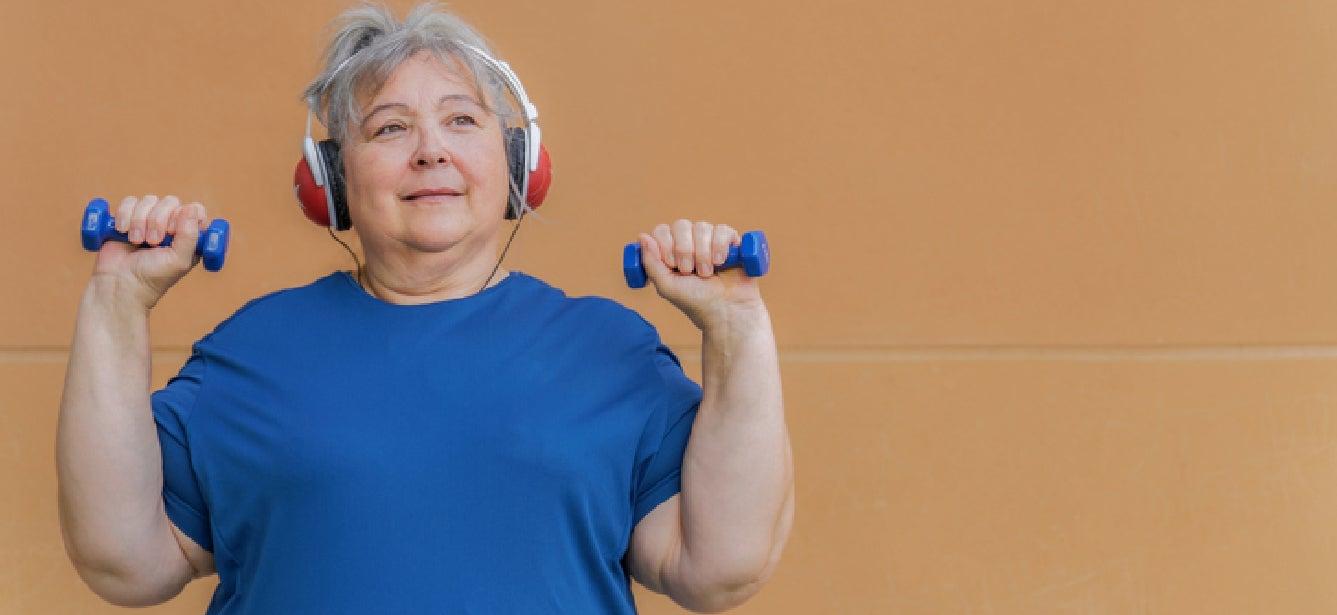Get the Facts on Chronic Disease Self-Management
7 min read

Americans are living longer, healthier lives. Still, diabetes, arthritis, hypertension, lung disease, obesity and other chronic diseases can make life difficult to manage for millions of older adults, often forcing them to give up their independence.
The challenges of chronic disease
- Older adults are disproportionately affected by chronic conditions, such as diabetes, arthritis, and heart disease.
- Among adults 65 and older, 93% have at least one chronic condition, and nearly 80% have two or more.1
- Chronic diseases can limit a person’s ability to perform daily activities, cause them to lose their independence, and result in the need for institutional care, in-home caregivers, or other long-term services and supports.2
The cost of chronic diseases
The traditional medical model of caring for people with chronic diseases—which focuses more on the illness than on the patient—is expensive and often ineffective.
- Chronic diseases are the leading drivers of increasing the nation’s health care costs of $4.5 trillion annually.3
- Cardiovascular disease and diabetes are the most expensive chronic conditions with annual spending totaling $422 billion and $413 billion, respectively.3
NCOA’s role
Addressing chronic illness through the Chronic Disease Self-Management Program (CDSMP)
Addressing chronic diseases requires new strategies to delay health deterioration, improve function, and address the problems that people confront in their day-to-day lives.
The Chronic Disease Self-Management Program (CDSMP) is a low-cost program that helps adults with chronic diseases learn how to manage and improve their health. Interactive workshop sessions focus on problems that are common to individuals dealing with any chronic disease. Topics include pain management, nutrition, exercise, medication use, emotions, and communicating with doctors. Workshops are led by two trained facilitators, at least one of whom has a chronic disease. Fifteen hours of content are covered during weekly sessions held over a six-week period. Throughout the program, approximately 10-15 participants focus on building skills to manage their conditions by sharing experiences and providing mutual support.
The program:
- Helps people with medical diagnoses such as diabetes, arthritis, and hypertension develop skills and coping strategies to manage their symptoms.
- Employs action planning, interactive learning, behavior modeling, problem-solving, decision-making, and social support for change.
- Is offered via two venues—online and in-person held in community settings such as senior centers, churches, community health clinics, and libraries.
- Has disease-specific variants for diabetes, chronic pain, cancer survivors, HIV/AIDS, and arthritis.
- Is available in Spanish for the chronic disease and diabetes self-management programs, and the Self-Management Resource Center-developed CDSMP trainer manual is available in over 19 different languages.
Benefits of CDSMP
Based on a national study of CDSMP, the program resulted in significant, measurable improvements in the health and quality of life of adults with chronic diseases. CDSMP also appears to save enough through reductions in health care expenditures to pay for itself within the first year.
Participants in CDSMP saw:
- Improved self-reported health.
- Improved health status in six indicators: fatigue, shortness of breath, depression, pain, stress, and sleep problems.
- Improved health-related quality of life, unhealthy physical days, and unhealthy mental days.
- Improved communication with doctors, medication compliance, and health literacy.
In addition, CDSMP results in significant cost savings, realizing an average of:
- $714 per person savings in emergency room visits and hospital utilization.
- $364 per person net savings after considering program costs of $350 per participant.
- Potential savings of $6.6 billion by reaching 10% of Americans with one or more chronic disease.4
NCOA’s role
The National Council on Aging (NCOA) is committed to research and development work on evidence-based self-management and patient engagement.
National CDSME Resource Center
Housed at NCOA's Center for Healthy Aging, the National Chronic Disease Self-Management Education Resource Center raises awareness about the impact of chronic conditions on older adults and supports the implementation of evidence-based health promotion programs across the nation.
Through a partnership with the U.S. Administration for Community Living, NCOA promotes CDSMP and its variants through community-based workshops. CDSMP is also supported in communities by grants from the Centers for Disease Control and Prevention and other funders. Since 2006, more than 400,000 people have participated in these impactful programs.
Related Resources
- Self-Management Resource Center
- Find an evidence-based program
- Healthy Aging Data from the CDC
- National Study of the Chronic Disease Self-Management Program: A Brief Overview
Sources
1. Kathleen B. Watson, et al. Trends in Multiple Chronic Conditions Among US Adults, By Life Stage, Behavioral Risk Factor Surveillance System, 2013-2023. Preventing Chronic Disease. April 17, 2025. Found on the internet at: https://www.cdc.gov/pcd/issues/2025/24_0539.htm
2. Centers for Disease Control and Prevention. The State of Aging and Health in America 2013. Atlanta, GA: Centers for Disease Control and Prevention, US Dept of Health and Human Services; 2013
3. Centers for Disease Control and Prevention. Fast Facts: Health and Economic Costs of Chronic Conditions. Found on the internet at https://www.cdc.gov/chronicdisease/about/costs/index.htm
4. NCOA. National Study of the Chronic Disease Self-Management Program. 2021. Found on the internet at https://www.ncoa.org/article/national-study-of-the-chronic-disease-self-management-program-a-brief-overview


